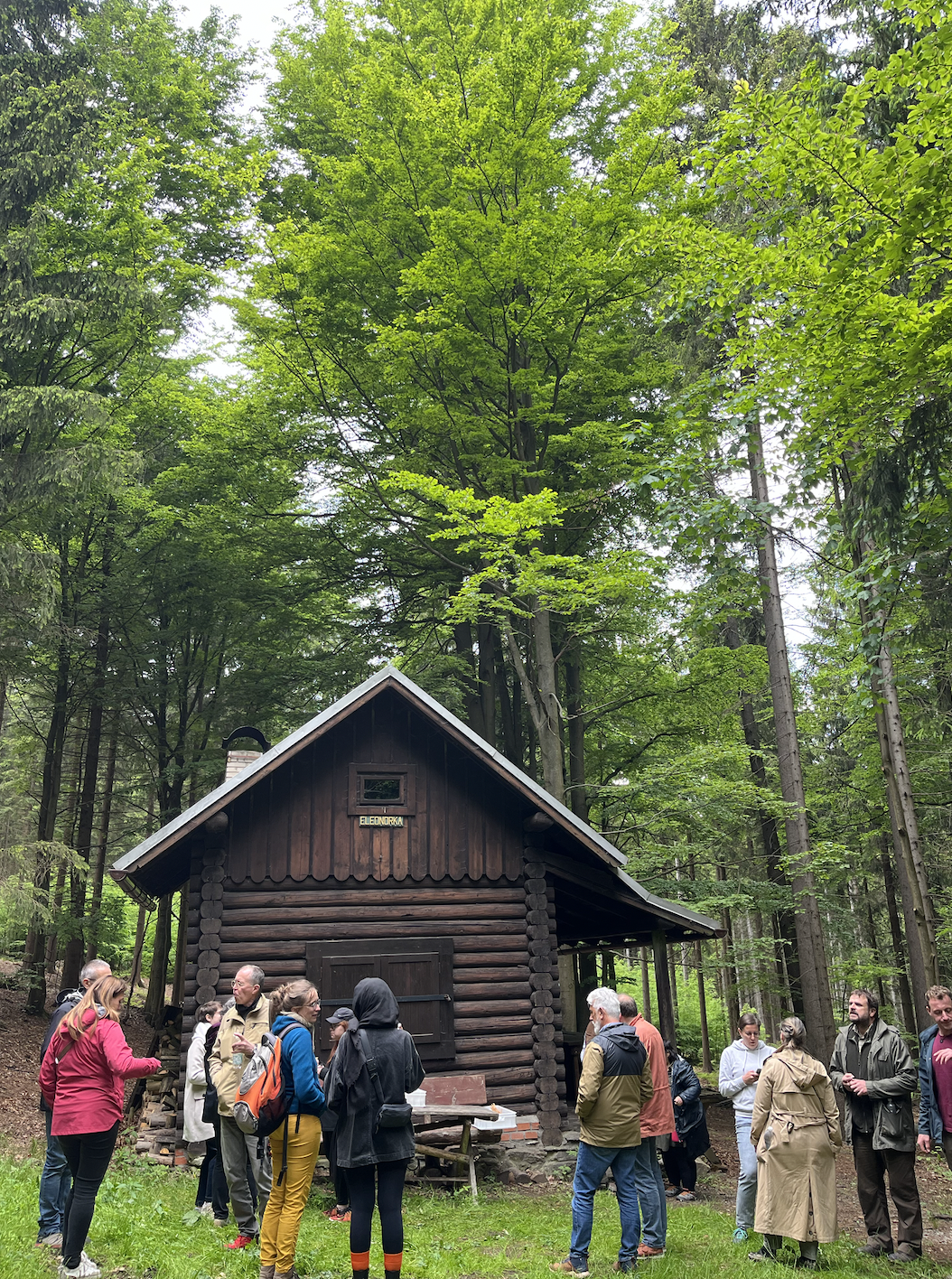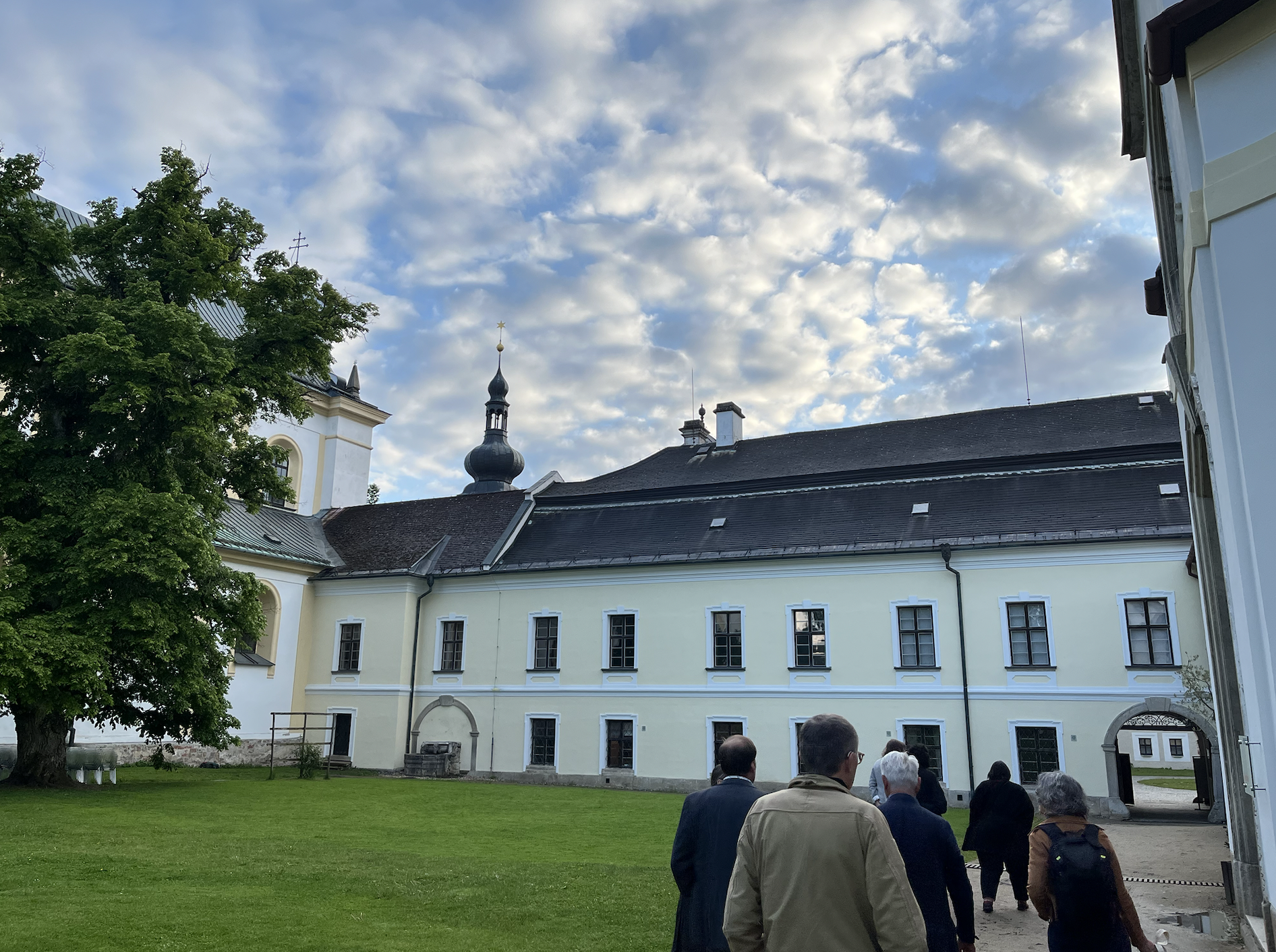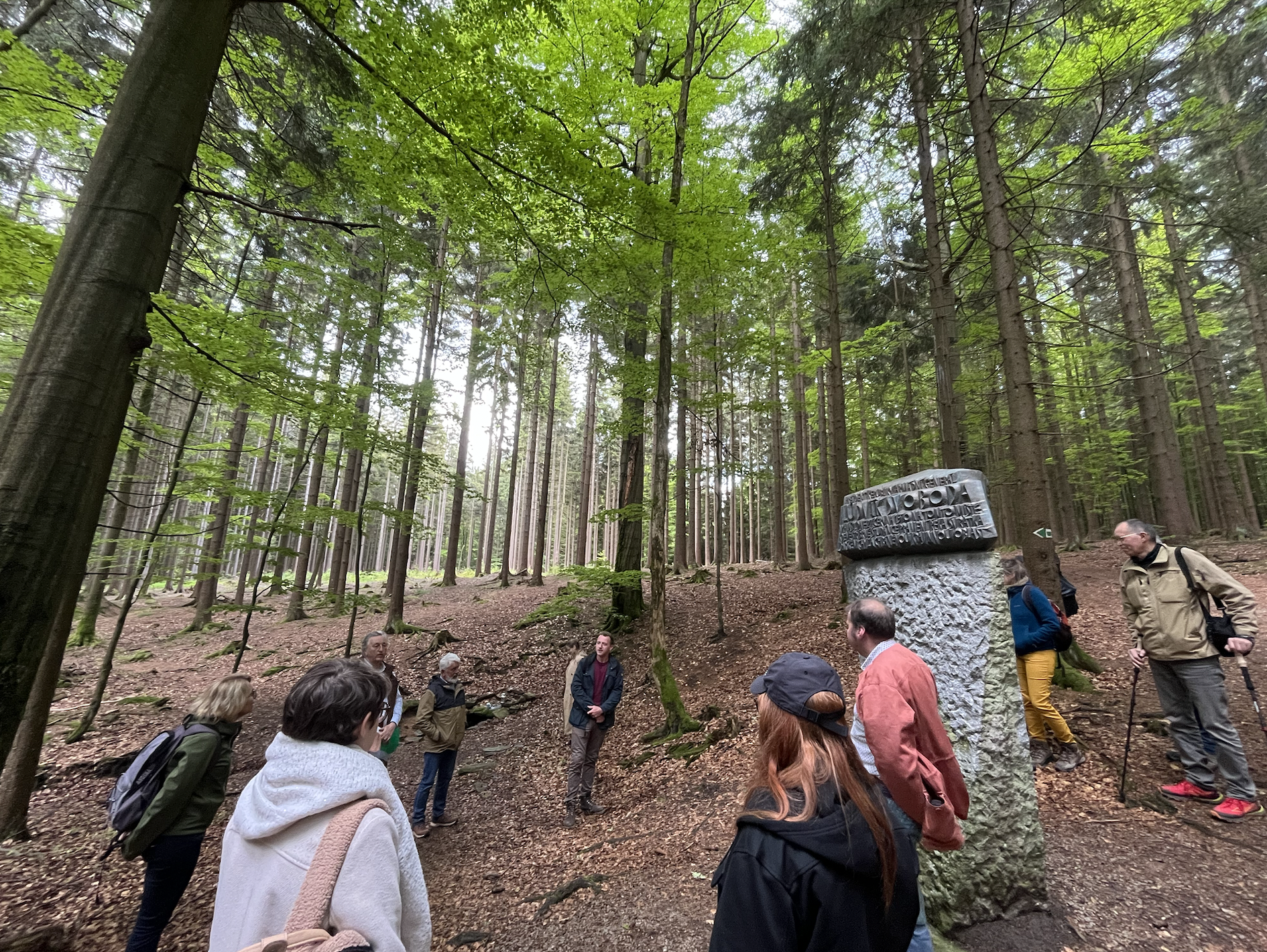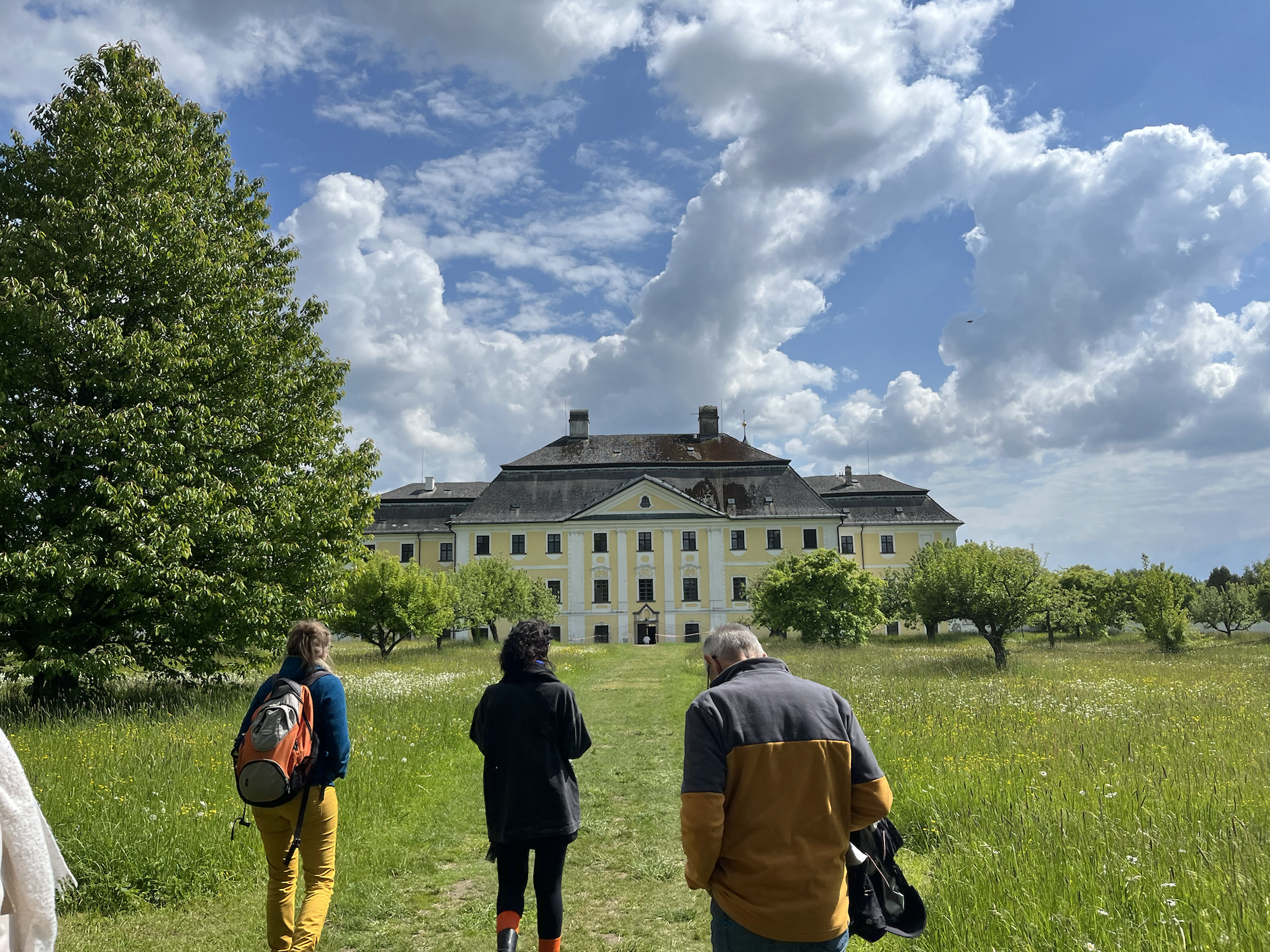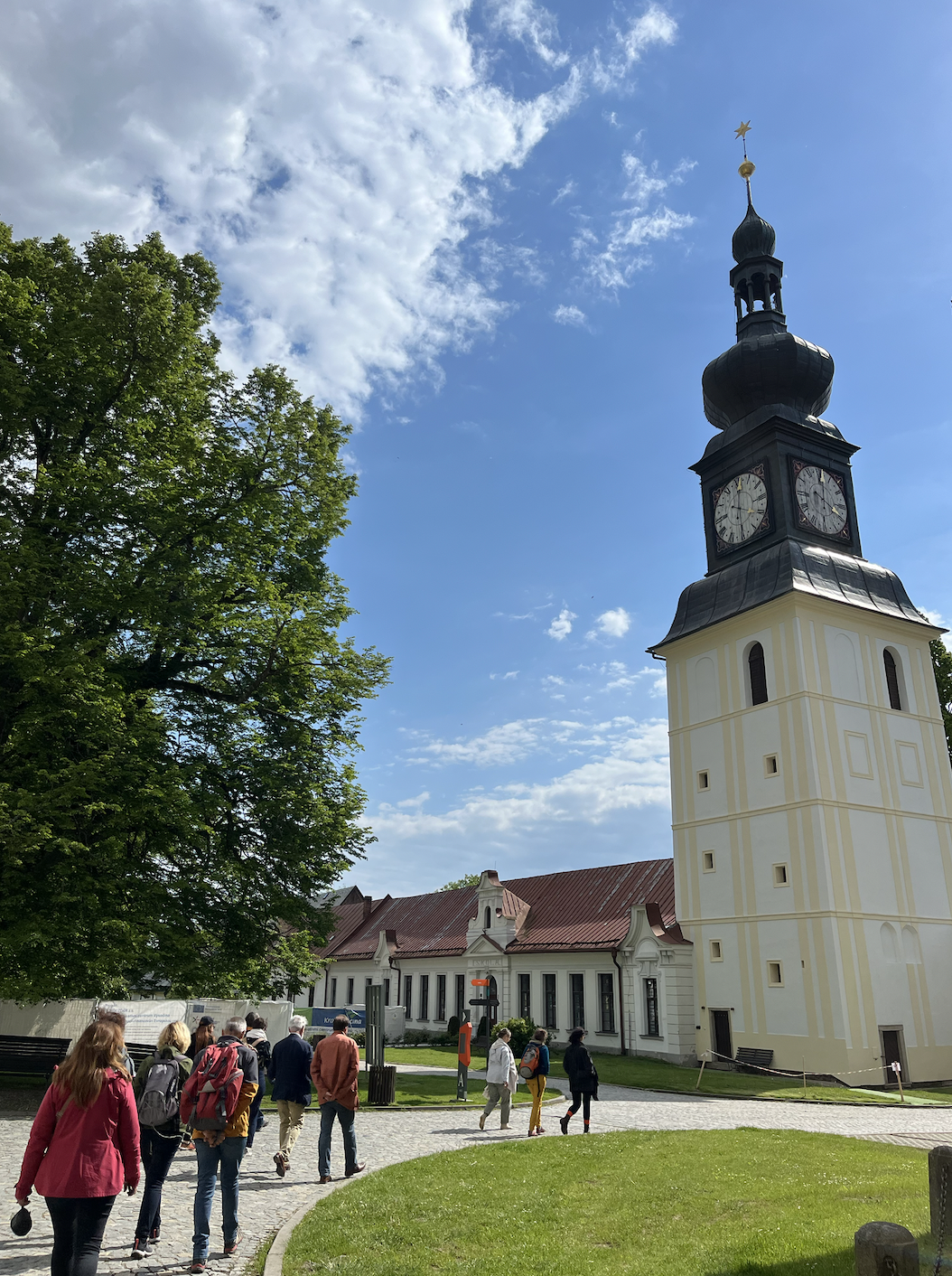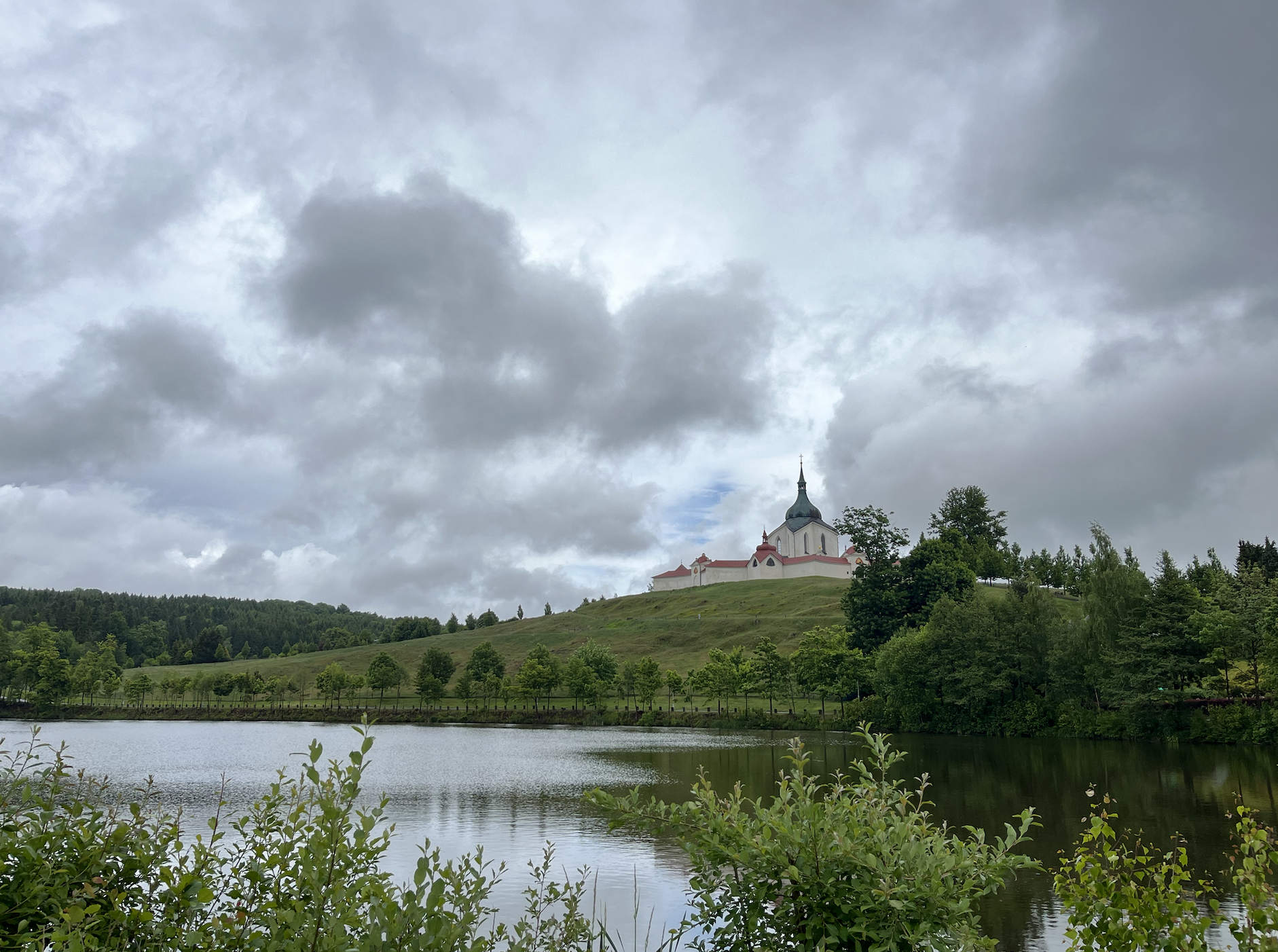As part of an Erasmus+ program on “Tourism & Sustainability,” the Ambronay CCR organized a learning trip from May the 26th to the 29th, 2025, to Žďár Castle, an associate member of the ACCR since 2024, located in the Czech Republic.
During an excursion to the forest managed by Žďár Castle, participants were able to discuss a number of topics, including demystifying the relationship between humans and nature, sustainable resource management, visitor awareness, the concept of public service, and consideration of the needs and rights of living beings.
The concept of public service permeated the discussions and emerged as the key element giving meaning to the actions of cultural actors, whether public or private, insofar as their missions and responsibilities respond to issues of public utility. In the case of Žďár Castle, this applies both to their artistic and cultural activities and to the forest management of their estate, which involves, among other things, water management, biodiversity preservation, species regeneration, and soil enrichment.
In order to open up dialogue with the public and raise awareness of the activities carried out by Žďár Castle, the site plans to organize guided forest walks starting in September. This nature walk proposal has been echoed within the CCR network, notably by the Abbaye de Noirlac, which offers tours of its wooded grounds, the Ferme de Villefavard, which provides guided landscape readings, and the Domaine du Rayol, which organizes marine trails. These are all opportunities to communicate about a culture and nature approach.
This dialogue with the public will enable Žďár Castle to explain its position, which is to demystify the relationship between humans and nature. The site's teams have adopted the motto “Helping nature to help us,” which corresponds to responsible forest management: relying on what nature does on its own while intervening where necessary, according to the principle of forest gardening. The site is thus working to deconstruct the image that human intervention is necessarily bad and harmful to nature. This may involve, for example, explaining the principle of clear cutting or tree spacing so that each tree has sufficient water in a context of climate change.
Discussions also focused on the place given to living beings in decision-making bodies in order to defend their rights and interests in the choices made by the structure. In the same way that attention is paid to the establishment of shared governance with different groups and profiles represented and listened to, participants questioned the place to be given to living beings that do not have a direct voice. In this sense, the actions of the Parlement de Loire can be inspiring.

